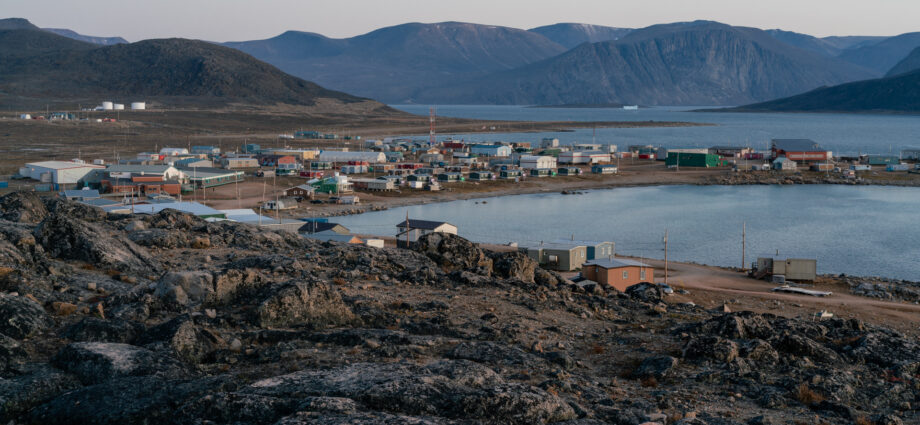
Nunavut deserves an equitable share of licenses and quotas for its adjacent fisheries.
by Warren Bernauer. Originally published on Policy Options
July 27, 2024
In April, the Federal Court of Canada issued a decision backing two Inuit organizations from Nunavut that sued the federal minister of fisheries and oceans over a controversial decision to reissue licences for offshore turbot and shrimp fishing to a partially Indigenous-owned company based in Atlantic Canada.
The case shows that Ottawa continues to use Nunavut’s resources to solve commercial fishing crises in Atlantic Canada – in this case by reissuing licences and quotas to Clearwater Seafoods Limited, now owned by a partnership that includes a Mi’kmaq-owned company.
Instead, the federal government should decolonize commercial fishing in Canada, including transferring offshore quota to Indigenous fishers in adjacent jurisdictions.
This would entail taking quota from existing stakeholders to support the implementation of the Mi’kmaq treaty right to fish, as well as transferring quota for Nunavut’s adjacent fisheries to Nunavut-based firms.
A long history of crises
Clearwater, one of the largest seafood companies in the world, was purchased in 2021 by a partnership between a coalition of Mi’kmaq-owned communities and a British Columbia-based speciality-foods company after a decades-long crisis over Indigenous fishing rights on the East Coast.
There is a long history of political crises in Atlantic Canada over Mi’kmaq fishing rights, including the targeting and destruction of Indigenous fishing facilities, the shocking use of violence against Mi’kmaq fishers in 2000 by officials of the Department of Fisheries and Oceans (DFO) and a precedent-setting decision by the Supreme Court of Canada.
When Mi’kmaq communities purchased a share of Clearwater Seafoods, the company already held licences to harvest turbot and shrimp in waters adjacent to Nunavut.
The two Inuit organizations that won the Federal Court case – Nunavut Tunngavik Incorporated (NTI) and the Qikiqtani Inuit Association (QIA) – argued that these licences should not have been transferred from one southern company to another without regard for the Inuit right to access an equitable share of Nunavut’s fisheries.
When the minister decided to reissue the licences, Nunavut-based companies were allocated 76 per cent of the turbot quota and roughly 38 per cent of the northern shrimp quota in waters adjacent to Nunavut. By contrast, in Atlantic Canada, regional companies hold roughly 90 per cent of quotas and licences in adjacent waters.
The Federal Court judge found that the minister’s decision to reissue the licences was unreasonable and in violation of the Nunavut Agreement. The decision was then “remitted to the Minister for re-determination.” It remains unclear to what companies the licences will ultimately be issued.
A decades-long struggle
This case is just the latest chapter in a decades-long struggle over access to fishing quotas in the waters adjacent to Nunavut.
Atlantic fishing companies have historically dominated Nunavut’s adjacent fisheries, as I explained in the journal Polar Record and as several Senate committee reports have concluded.
Many of today’s northern shrimp and turbot licences were issued in the 1990s in the context of political crises over declining cod stocks in Atlantic Canada – a move that effectively dispossessed Nunavut Inuit of an important economic opportunity.
Article 15.3.7 of the Nunavut Agreement states that the Crown “recognizes the importance of the principles of adjacency and economic dependence of communities in the Nunavut Settlement Area on marine resources, and shall give special consideration to these factors when allocating commercial fishing licences” in offshore waters adjacent to Baffin Island.
Finding a way forward on the Mi’kmaq and Maliseet treaty rights to fish for a moderate livelihood
Canada’s actions around the Mi’kmaq fisheries rest on shaky legal ground
Bill C-68 enshrines human dimensions in Canadian fisheries law
Inuit conservation is transforming life and work in the Arctic
The article further states that these principles “will be applied in such a way as to promote a fair distribution of licences between the residents of the Nunavut Settlement Area and the other residents of Canada and in a manner consistent with Canada’s interjurisdictional obligations.”
This section is one of the most contentious passages in the Nunavut Agreement and has been the subject of five separate lawsuits since the agreement was signed in 1993, including legal action initiated by NTI, the government of Nunavut and the Nunavut Wildlife Management Board.
In response to this litigation, the federal government has gradually increased the share of offshore quota allocated to Nunavut firms.
However, the federal government did not transfer quota from existing holders in Atlantic Canada. Instead, it increased the overall quota in Nunavut-adjacent waters, with a significant share of the new quota allocated to Inuit-owned companies based in Nunavut.
In addition, a substantial portion of the quota and licences allocated to Nunavut-based firms are in the most remote – and therefore the least profitable and economically viable – fishing areas adjacent to Nunavut.
In the case of Clearwater’s shrimp and turbot licences, it appears that DFO is once again using Nunavut’s resources to solve fisheries-related crises in Atlantic Canada.
By doing so, it continues to rob Nunavut of economic opportunity. It’s time for a new approach to fisheries management that emphasizes justice for Indigenous communities.
Subscribe to our newsletter.
This article first appeared on Policy Options and is republished here under a Creative Commons license.


